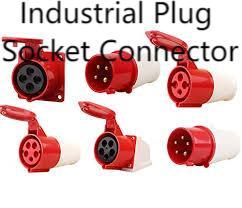Nante Guides Specifiers on Choosing an Industrial Plug Socket Connector for Reliable Power

Selecting the right connection hardware is more than a parts decision; it shapes uptime, safety, and serviceability across an installation. Engineers often place an Industrial Plug Socket Connector at the centre of system requirements, weighing contact robustness against ease of inspection to reduce unexpected downtime. Early in the specification process, procurement teams also call out an Industrial Plug Socket Connector as the reference item so that testing, accessory choices, and spare-part planning align with operational needs.
Why connector choice matters
A connector is the physical boundary where two systems meet — power, signals, or protective earth paths. Failures at this interface cause more than an immediate outage: they can trigger cascade effects, complicate fault diagnosis, and increase maintenance frequency. Selecting a connector that matches the environment, duty cycle, and electrical requirements reduces the chance of premature wear and preserves the wider system’s reliability.
Performance attributes to prioritise
When evaluating alternatives, focus on contact material and plating, mating cycles, thermal behaviour under load, and ingress protection for the assembly. Mechanical retention and strain relief influence long-term reliability under vibration or repeated handling. Equally important are design elements that simplify verification, such as clear polarity markers, tactile locking mechanisms, and accessible test points that allow technicians to confirm continuity without dismantling the system.
Design for durability and serviceability
A durable product blends corrosion-resistant materials with thoughtful mechanical design. Avoid designs that trap contaminants or make gasket replacement difficult. Instead, prefer solutions that allow routine servicing: removable inserts, replaceable contacts, and easily accessed fasteners. Modular designs let teams repair or replace worn elements in the field without scrapping entire assemblies, which reduces downtime and lowers life-cycle cost.
Nante accessory ecosystem and compatibility
Accessory availability shapes how flexibly a connector can be used across projects. When platforms offer standardized mounting plates, sealing kits, and cable glands, engineers can deploy a single connector family in multiple roles without extensive rework. Documented compatibility makes it easier to plan spares and to ensure that replacements fit without improvisation during repairs, which improves safety and keeps schedules on track.
Testing, certification, and traceability
Robust manufacturers publish test data and quality records that go beyond marketing claims. Request sample test reports for contact resistance, dielectric withstand, mechanical endurance, and environmental sealing. Batch-level traceability — where production lots and test results are recorded — helps when a large deployment requires consistent performance or when regulatory compliance needs documented proof.
Procurement and lifecycle planning
Good procurement language is specific: state expected duty cycles, required certifications, acceptable material treatments, and any accessory compatibility. Include repair and warranty expectations, plus a plan for stocking critical spares. Lifecycle planning should anticipate periodic inspections and identify which components are intended to be consumables so teams can schedule replacements before failures occur.
Installation and field practices
Even a premium connector can underperform if installed poorly. Train teams in correct cable preparation, torque specifications, and proper engagement techniques. Encourage simple inspection routines that look for corrosion, unusual heating, or increased mating resistance; these early indicators often precede functional failure and are easy to check with minimal tools.
Final considerations and next steps
Balancing upfront cost with maintainability and documented performance pays dividends in operational uptime. For projects that will see frequent mating cycles, harsh environments, or critical continuity requirements, specify connectors that allow component-level servicing, supply clear accessory kits, and provide test documentation. Teams evaluating suppliers or seeking compatibility lists and accessory options can find further product information and technical resources at www.nante.com/product/
- Art
- Causes
- Crafts
- Dance
- Drinks
- Film
- Fitness
- Food
- Παιχνίδια
- Gardening
- Health
- Κεντρική Σελίδα
- Literature
- Music
- Networking
- άλλο
- Party
- Religion
- Shopping
- Sports
- Theater
- Wellness
